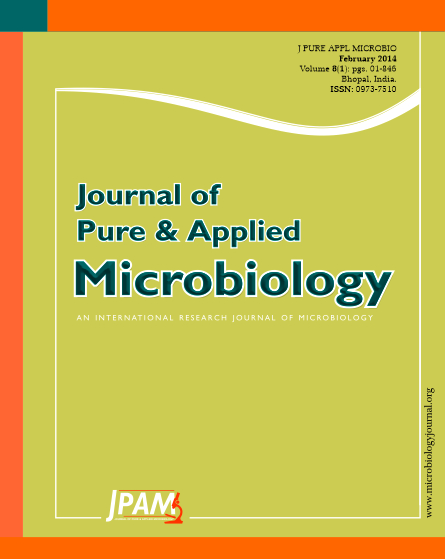Alkaline protease enzyme was produced under solid state fermentation by Fusarium solani. Various agro-wastes were evaluated to check their potential utilization in the solid state fermentation for protease production. In this connection, the results showed that rice straw was the best agro-waste. The best enzyme activity was achieved at 7th day of incubation, pH 8, temperature 45 °C, inoculum’s size 200 µl/100 ml, agitation speed at 140 rpm, and KNO3 as nitrogen source. The molecular weight of the obtained purified enzyme is 30 KDa. A protease inhibitor protein was isolated and purified from Rumex vesicarius L. The molecular weight of the inhibitor protein is 46 KDa and it composes of 17 amino acids. The minimum inhibitory concentration was found at 20 µl of the inhibitor per 40 µl of the enzyme. The obtained results showed that the inhibitor can withstand the heat at 70°C for 30 min, and pH (5-9) for 72 h at 4°C without loss of activity but it cannot be activated at low acidity less than pH 5 and very high temperature more than 70°C. This study will serve to increase the understanding of factors that control the production and inhibition of protease enzyme which may help in many industrial aspects.
Protease, Enzyme inhibitor, Protein purification, Fermentation, Rice straw
© The Author(s) 2014. Open Access. This article is distributed under the terms of the Creative Commons Attribution 4.0 International License which permits unrestricted use, sharing, distribution, and reproduction in any medium, provided you give appropriate credit to the original author(s) and the source, provide a link to the Creative Commons license, and indicate if changes were made.


